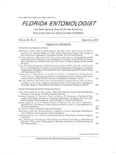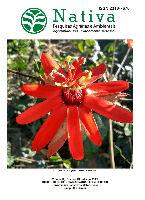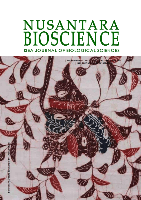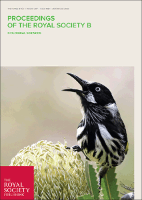
Vestnik Tomskogo Gosudarstvennogo Universiteta-Biologiya
Scope & Guideline
Empowering Researchers Through Open Access to Vital Discoveries
Introduction
Aims and Scopes
- Ecological and Biodiversity Studies:
Research on the distribution, abundance, and ecological roles of various species, particularly in unique habitats such as the Siberian wilderness and urban environments. - Physiological and Biochemical Research:
Studies examining physiological responses of organisms to environmental changes, including stress responses in plants and animals. - Soil and Environmental Sciences:
Investigations into soil composition, characteristics, and the impacts of anthropogenic activities on soil health and ecology. - Plant Biology and Phytochemistry:
Research focused on plant species, their reproductive biology, responses to abiotic factors, and their ecological interactions within specific environments. - Microbial Ecology and Biotechnology:
Exploration of microbial diversity, their roles in ecosystems, and potential biotechnological applications, particularly in waste management and soil health.
Trending and Emerging
- Climate Change Impact Studies:
There is a growing emphasis on understanding how climate change affects biodiversity, species distribution, and ecological interactions, highlighting the urgency of this global issue. - Urban Ecology and Adaptation:
Research on how urban environments affect wildlife and plant species is on the rise, reflecting increased interest in urban biodiversity and ecological adaptation. - Microplastic Pollution and Its Effects:
The focus on microplastic ingestion by aquatic species signifies an emerging concern regarding pollution and its impact on food webs and ecosystem health. - Biotechnology and Sustainable Practices:
An increasing number of studies are exploring biotechnological applications in agriculture and waste management, indicating a trend towards sustainable and innovative solutions in biological sciences.
Declining or Waning
- Agricultural Practices and Crop Studies:
Research specifically focused on traditional agricultural practices and crop yields has decreased, indicating a potential shift towards more ecological and sustainable approaches. - Invasive Species Research:
Studies on the impacts and management of invasive species seem to be less frequent, suggesting a waning interest or perhaps a transition to more holistic ecological studies. - Genetic Studies in Wildlife Populations:
Although still relevant, the frequency of genetic studies focusing solely on wildlife populations has declined, possibly due to a broader focus on ecological interactions and conservation efforts.
Similar Journals

FLORIDA ENTOMOLOGIST
Advancing the Frontiers of Insect ScienceFLORIDA ENTOMOLOGIST is a prestigious peer-reviewed journal dedicated to the advancement of entomological sciences, published by Walter de Gruyter GmbH. Since its transition to open access in 1994, the journal has become a vital resource for researchers, students, and professionals in the fields of Insect Science and Ecology, Evolution, Behavior, and Systematics. With an impact factor ranking high in its category—Q2 in Insect Science and Q3 in Ecology, Evolution, Behavior and Systematics—the journal showcases significant findings and contributions that shape our understanding of insect biology and its implications for ecological systems. The journal is indexed in Scopus, further establishing its relevance, with current rankings reflecting its competitive standing within Agricultural and Biological Sciences. Published continuously since 1982, FLORIDA ENTOMOLOGIST not only facilitates the dissemination of knowledge among entomologists but also encourages interdisciplinary collaboration, making it an essential publication for anyone invested in the scientific study of insects.

ACTA PROTOZOOLOGICA
Advancing Knowledge in Protozoology and EcologyACTA PROTOZOOLOGICA, published by Jagiellonian University, Institute of Environmental Sciences, is a premier journal dedicated to the study of protozoology, encompassing the biological complexities of protozoa and their ecological implications. With an ISSN of 0065-1583 and an E-ISSN of 1689-0027, this journal has been a vital resource for researchers and professionals in the fields of Agricultural and Biological Sciences since its inception in 1973, with coverage spanning from 1973 to 1990 and from 1992 to 2024. Recognized as a Q1 journal in its category for 2023, ACTA PROTOZOOLOGICA boasts high visibility and contributes significantly to the advance of knowledge and research in its discipline, as evidenced by its Scopus ranking of #103 out of 221 in Agricultural and Biological Sciences. While the journal is not open access, it maintains a rigorous selection process, ensuring that only the highest quality research is disseminated. Located at Gronostajowa 7, Krakow 30-387, Poland, the journal aims to foster communication among scientists and promote the study of protozoa in both academic and applied contexts, making it an essential source for anyone involved in biological sciences, ecology, and related research.

Biology-Basel
Fostering Collaboration in Cutting-edge Biological DiscoveriesBiology-Basel is a premier, peer-reviewed open-access journal published by MDPI since 2012, situated in the heart of Switzerland. With an E-ISSN of 2079-7737, this journal serves as a vital platform for the dissemination of innovative research across the broad spectrum of Agricultural and Biological Sciences, Biochemistry, Genetics, Molecular Biology, and Immunology. Recognized for its rigorous editorial standards and impactful findings, it currently ranks Q1 in Agricultural and Biological Sciences and holds impressive positions in several categories according to the 2023 Scopus rankings. The journal’s open-access model ensures that high-quality research is freely available to a global audience, fostering collaboration and knowledge sharing among researchers, professionals, and students alike. Spanning from 2012 to 2024, Biology-Basel is committed to reflecting the latest advancements in biological sciences, making it an essential resource in the ever-evolving landscape of biological research.

Journal of Biological Research-Thessaloniki
Connecting Researchers to Transformative Biological Insights.Journal of Biological Research-Thessaloniki, published by Aristotle University of Thessaloniki, is a distinguished academic journal committed to advancing the fields of Agricultural and Biological Sciences and Biochemistry, Genetics and Molecular Biology. As an Open Access journal since 2004, it provides a platform for the rapid dissemination of innovative research that spans diverse biological disciplines. With an impact factor that situates it in the Q2 category for Agricultural and Biological Sciences and Q3 for Biochemistry, Genetics and Molecular Biology as of 2023, the journal demonstrates a significant contribution to its respective fields. Located in Thessaloniki, Greece, it serves a global audience of researchers, professionals, and students eager to access quality scientific content. The journal is dedicated to publishing original research articles, reviews, and critical commentaries, encouraging collaboration and dialogue amongst scientists dedicated to the frontiers of biological research.

PERIODICUM BIOLOGORUM
Exploring Innovations in Agriculture and MedicinePERIODICUM BIOLOGORUM is a well-established interdisciplinary journal published in Croatia that focuses on advancing the fields of agricultural and biological sciences, biochemistry, genetics, and molecular biology, along with general medicine. With its roots dating back to 1980, the journal has been an essential platform for the dissemination of original research, reviews, and theoretical studies, fostering collaboration and dialogue among researchers within these diverse areas. While currently holding a Q4 quartile ranking in several categories, including agricultural and biological sciences, biochemistry, and general medicine, it provides a significant opportunity for authors seeking to contribute to the body of knowledge in these sectors. Although Open Access options are not available, the journal's rich history and commitment to quality scholarship make it a valuable resource for professionals, researchers, and students alike, aiming to stay informed about current trends and advancements in biological research and its applications.

Brazilian Journal of Botany
Exploring the depths of plant biology and agriculture.The Brazilian Journal of Botany, published by SOC BOTANICA SAO PAULO, stands as a vital resource in the field of plant sciences, particularly noted for its contributions to agricultural and biological research. With an ISSN of 0100-8404 and an E-ISSN of 1806-9959, this journal has established a robust presence since its inception, continuing to foster growth in botanical research through its anticipated publications from 2006 to 2024. Ranking in the second quartile (Q2) in Plant Science and positioned at 207 out of 516 within Scopus rankings, the journal demonstrates both quality and relevance, occupying the 59th percentile in its category. As an essential platform for scholars, practitioners, and students alike, it disseminates original research, reviews, and advancements within plant biology, thereby promoting understanding and innovation in plant sciences. While the journal currently does not offer open access, its rich content remains pivotal for those invested in the intricacies of botanical science.

Nativa
Exploring innovative solutions for environmental challenges.Nativa, published by the Universidade Federal de Mato Grosso in Brazil, stands as a prominent open-access journal since 2013, dedicated to the dissemination of research across various domains of Agricultural and Biological Sciences. With its ISSN 2318-7670, Nativa aims to foster scholarly communication and collaboration among researchers and practitioners worldwide. The journal occupies notable positions within the Scopus rankings, with a Q3 classification in several categories, including Agricultural and Biological Sciences (miscellaneous) and Environmental Science (miscellaneous), while also holding a Q4 classification in areas such as Agronomy and Crop Science and Animal Science and Zoology. This positioning reflects its commitment to advancing knowledge and understanding crucial to sustaining and enhancing our natural resources. Nativa seeks to engage a diverse readership by providing a platform for innovative research, fostering interdisciplinary discourse, and addressing pressing environmental challenges and conservation efforts essential for sustainable development.

Nusantara Bioscience
Elevating Standards in Open-Access Bioscience ResearchNusantara Bioscience is a prominent open-access journal dedicated to the field of biosciences, published by the Masters Program in Public Health at UNIV SEBELAS MARET in Surakarta, Indonesia. Since its inception in 2009, this journal has made significant contributions to the global discourse on biological sciences, environmental health, and public health research, providing researchers and professionals with an essential platform for sharing their findings. The journal, which holds an ISSN of 2087-3948 and an E-ISSN of 2087-3956, is committed to maintaining high academic standards while ensuring accessibility to quality research outcomes. Nusantara Bioscience enables a diverse audience, from students to seasoned researchers, to disseminate impactful studies and advance knowledge in the biosciences, reflecting the evolving challenges and innovations within the field.

PROCEEDINGS OF THE ROYAL SOCIETY B-BIOLOGICAL SCIENCES
Advancing Knowledge in Biological SciencesPROCEEDINGS OF THE ROYAL SOCIETY B-BIOLOGICAL SCIENCES, published by the esteemed Royal Society, stands as a premier platform for disseminating cutting-edge research in the fields of Biological Sciences. With an impressive impact factor reflective of its high citation rates and scholarly contributions, this journal encompasses a wide array of disciplines, including Agricultural and Biological Sciences, Biochemistry, Genetics and Molecular Biology, Environmental Science, and Immunology and Microbiology, consistently ranking in the Q1 category across these fields. Since its inception in 1946, it has been committed to advancing our understanding of biological systems and informing evidence-based practices. Researchers and academics can submit their work without the Open Access barrier, thereby maintaining the integrity of the disciplinary discourse while providing comprehensive insights. The journal's location in the United Kingdom also positions it at the heart of global scientific innovation, making it a vital resource for professionals and students alike who are eager to explore the latest trends and breakthroughs in the biological sciences.

Bioscience Journal
Connecting minds, cultivating knowledge in biosciences.Bioscience Journal is a premier open-access publication dedicated to advancing research in the field of agricultural and biological sciences. Published by the Universidade Federal de Uberlândia, this journal has been a vital resource for the academic community since its transition to open access in 2001. With the ISSN 1981-3163, it serves as an essential platform for disseminating innovative research findings and methodologies that contribute to the sustainable development of biological resources. As of 2023, it has been categorized in the Q4 quartile in Agricultural and Biological Sciences (miscellaneous) and ranks 152 out of 221 in Scopus, placing it in the 31st percentile. The journal's scope encompasses a wide array of topics that stimulate interdisciplinary discourse and collaboration among researchers, professionals, and students alike. With engaging content and a commitment to accessibility, Bioscience Journal plays a crucial role in fostering scholarly communication and enriching the academic landscape in Brazil and beyond.